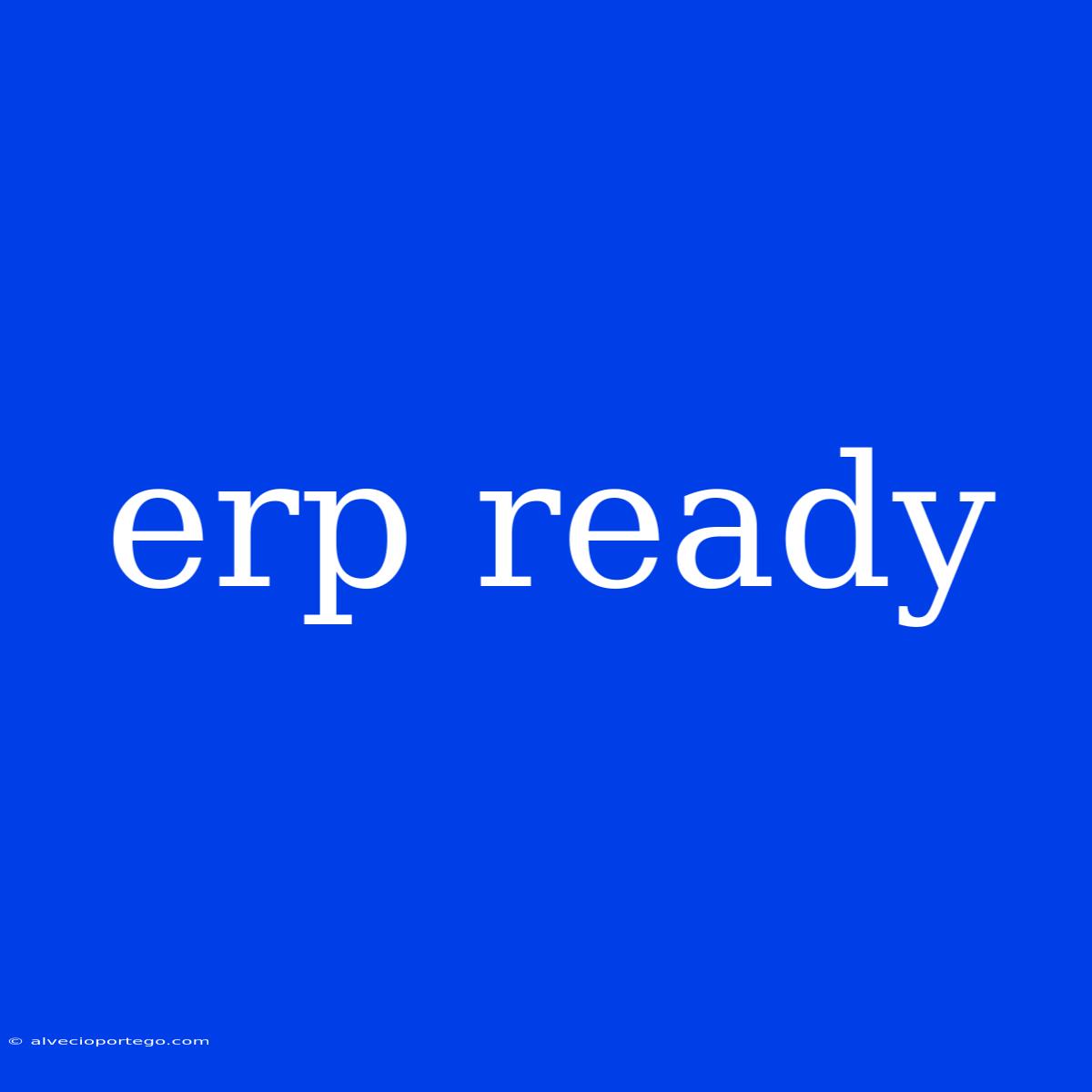ERP-Ready: What It Means and Why It Matters
"ERP-ready" is a term used to describe a business that is prepared to implement an Enterprise Resource Planning (ERP) system. It's not just about having the technology in place, but also about the processes, people, and data that are necessary for a successful ERP implementation.
Why is being ERP-ready important?
- Increased efficiency and productivity: A well-implemented ERP system can streamline business processes, eliminate redundancy, and improve data accuracy. This leads to increased efficiency and productivity, boosting overall profitability.
- Improved decision-making: ERP systems provide real-time insights into business operations, enabling better-informed decision-making.
- Enhanced customer satisfaction: A streamlined system can improve order fulfillment, inventory management, and customer service, leading to increased customer satisfaction.
- Reduced costs: ERP systems can help businesses reduce costs by automating processes, streamlining operations, and minimizing errors.
- Better compliance: ERP systems can help businesses meet regulatory requirements and industry standards.
Key Elements of an ERP-Ready Business:
1. Process Standardization and Documentation:
- Well-defined business processes: A clear understanding of current business processes is crucial for successful ERP implementation.
- Process documentation: Having documented processes ensures consistency and provides a roadmap for implementation.
- Streamlining workflows: Identifying and eliminating redundancies and inefficiencies is key.
2. Data Integrity and Management:
- Accurate and consistent data: ERP systems require clean and reliable data for optimal performance.
- Data migration plan: Develop a plan for transferring data from existing systems to the new ERP platform.
- Data governance and security: Establish protocols for data management, security, and access control.
3. IT Infrastructure and Support:
- Robust IT infrastructure: Ensure that your IT infrastructure can support the ERP system's hardware and software requirements.
- IT team expertise: Having a skilled IT team capable of implementing, maintaining, and supporting the ERP system is essential.
- Data backup and recovery plan: Implement measures to safeguard data and ensure business continuity.
4. User Training and Adoption:
- Comprehensive training programs: Provide adequate training to users on how to use the new system effectively.
- Change management strategies: Develop strategies to manage user resistance and promote buy-in for the new system.
- Continuous support and communication: Offer ongoing support and communication to users to address questions and ensure smooth adoption.
5. Project Management and Resources:
- Dedicated project team: Assign a skilled project team to oversee the implementation process.
- Clear project scope and timelines: Define the project scope, objectives, and timelines.
- Adequate budget and resources: Allocate sufficient budget and resources to support the implementation.
Becoming ERP-ready is an investment in your business's future. By taking the time to prepare, you can maximize the benefits of your ERP system and achieve your business goals.

